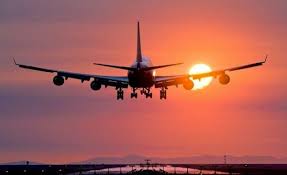JU aviation program aiding an industry during time of ‘unprecedented’ opportunities (Courtesy of the Jacksonville Business Journal) — Most aviation degrees are housed within science or engineering departments, but Jacksonville University has its flight school located in the Davis College of Business & Technology.
That’s because the focus of JU’s program is a little different than how other schools do things, according to Program Director Matt Tuohy.
“We’ve been business based since day one. Since then, some of the bigger programs have added a business-based options,” Tuohy said. “We really feel it gives our flight students a much broader picture of the aviation industry rather than just the yoke and rudder skills of flying an airliner.”
Flight academies and flight schools are spread out throughout the state. Other collegiate aviation programs in Northeast Florida include Embry-Riddle’s massive campus in Daytona Beach and programs offered Florida State College at Jacksonville.
In 2014, there were 120 students in JU’s program, and now the program has more than 280 students. It offers aviation management and flight operations degree with tracks for commercial pilots, military navy and military marine. There is also a aviation management degree with tracks for air traffic controllers, airline management and airport management.
After achieving their degree and numerous certifications, most students spend about year working as a flight instructor. Due to the changing job market within the industry, Tuohy said they can be a co-pilot on a regional airline in a relatively short time, four or five years, before they move to one of the major airlines.
Tuohy said his students get jobs shortly after graduating, not only pilots but mechanics and air traffic controllers.
“The opportunity industry-wide is absolutely unprecedented today,” Tuohy said. “It used to be, the airline chooses the student; now it’s almost the students get to pick the airline they want to work for. I don’t know how long that’s going to last, but it’s going to last a while.”
Tuohy said a business degree can work for airline pilots as they get more autonomy. It can factor into non-flying business decisions, or it can function as a Plan B.
“Anecdotally, we have airlines tell us they like having pilots understanding the business side of what they’re trying to do,” Tuohy said.
The military doesn’t produce as many pilots as it used to, meaning civilian-taught pilots can move through the ranks more quickly. There was pilot shortage before the Covid-19 pandemic curbed flights. Tuohy said during the pandemic airlines offered incentives for senior pilots to leave. However, when travel picked up, it exacerbated the need for pilots again.
“That provided a lot of upward movement for the people that were still employed, and that requires more people coming in at the bottom of the seniority chain,” he said. “Where do the majors get them … the regional airlines. (Regional airlines) have got to backfill their seniority list with other people.”

